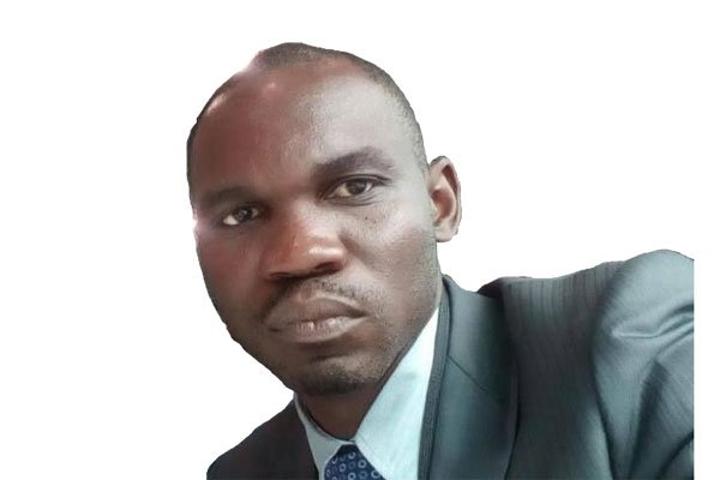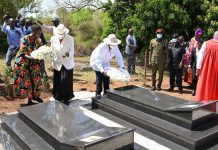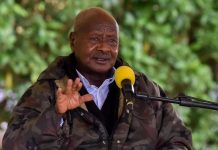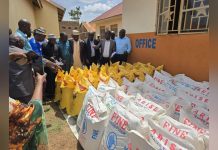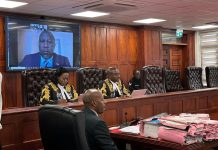Africa-Press – Uganda. The United Nations in 1981 established the International Day of Peace during their General Assembly. In 2001, the same assembly unanimously voted to designate September 21 each year as a period of non-violence and cease-fire. It is perhaps this spirit that prompted UN Secretary General of the United Nations Antonio Guterres on the March 23, 2020 to appeal for a global ceasefire amidst Covid-19 pandemic.
“The fury of the virus illustrates the folly of war. That is why today, I am calling for an immediate global ceasefire in all corners of the world. It is time to put armed conflict on lockdown and focus together on the true fight of our lives,” he said.
In response to this appeal, the UN Security Council in February unanimously passed a resolution calling for Member States to support a “sustained humanitarian pause” to local conflicts. The global ceasefire must continue to be honoured, to ensure that people caught in conflict have access to lifesaving vaccinations and treatment.
The globe is immeasurably smashed and heavily devastated not only by conflict, but also climate change and recently Covid-19. These crises have ravaged humanity from all angles irrespective of colour, race, caste, nationality, or even religion. Covid-19 has eclipsed all the other crises in terms of its immediate global ramification within a very short period of time.
What is peace? Peace means different things to different people. However, there is a wide understanding that peace is not merely an absence of war or the silence of guns but the ability to live in a conducive environment where people are free to express their thoughts, get a job they want and so on. Peace is said to exist when people’s wellbeing as humans is assured, when discrimination is combated, when people, their opinions and identities are respected, when there is justice and human rights for all, when the plight of forced migrants is highlighted.
As we observe this year’s day of peace under the theme: “Recovering better for an equitable and sustainable world”, we should be reminded that differences in perception, practice, ideology, values, priorities, to mention a few will always be there. It is what makes us human, perfectly imperfect. We are inspired to think creatively and collectively about how to help everyone recover better, how to build resilience and transform our world into one that is more equal, more just, equitable, inclusive, sustainable, and healthier.
This day is also a great reflection and reminder that humanity deserves better. For so long, we have conflicted not only as human beings but also with nature and its striking back in the form of global warming and other catastrophic natural disasters. In the recent past in Uganda, we have witnessed floating islands of water hyacinth disrupting hydro power generation; water levels in Lake Victoria rising far beyond records last seen in the 1960s; infrastructure such as hospitals, roads, houses, hotels and bridges submerged; entire villages buried by mudslides. All these are indicators of nature’s anger.
We have also seen emergence of new outfits such as the Cooperative for Development of Congo (CODECO), a loose association of various Lendu militia groups operating within Ituri province, DRC whose fighters are said to have recently attacked a UPDF installation in Zeu, Zombo. And the Uganda Homeland Liberation Front (UHLF) another rebel outfit purportedly operating in DRC that emerged to the limelight following attacks on an army detach in Zombo District in June 2020.
The recent past has seen assassinations and attempted assassinations including on the lives of high ranking military personnel. The greater Masaka and other parts of Buganda have been on tenterhooks after killings perpetrated by Machete-wielding gangs. Elections left the country divided and bruised and to date, lots of questions remain unanswered.
There is urgent need for dialoguing with fellow humans but also with nature with the aim of making peace and saving the future. It is imperative that as we look towards healing better together, instruments that adopt more peaceful approaches to domestic issues but also international relations are enacted and enforced universally without discrimination.
As we celebrate this year’s international day of peace, we need to understand that conflicts begin at an intrapersonal level where one is not at peace with their own thoughts racing with so much in their own minds. Making peace as well begins at a personal level. We need deeper inner reflection and evaluation of ourselves and our relationships with others focusing on identifying causal factors with the aim of reaching amicable resolutions agreeable to ourselves and others. We need to reach out to individuals who have angered us, write to them peaceful thoughts, forgive those who reach out to us with a remorseful heart. We need to resolve to create a more peaceful life.
Uganda as a country is blessed with diversity and there are traces in our history showing how this has been used as a conflict driver, but as we observe the International Peace Day, it is vital to note that we are stronger together and to recover better for an equitable and sustainable Uganda, we need to work together across lines of ethnicity, cast, religion, political and so forth to find a solution to our issues as a people.
On this Day of Peace, I would like to acknowledge the sacrifices, bravery and courage of all peace builders who have ensured that this country is pacified who include; – religious leaders, cultural leaders, opinion leaders, politicians, musicians, media, medical practitioners, uniformed personnel, and the local communities.
To save lives. Uganda’s support for a strong United Nations political declaration on HIV/Aids is vital if the world is to get to the end point after what, by 2030, will be nearly 50 years of the pandemic.
Now is the time to change the course of the HIV/Aids response. Now is the time to put the world on track to end Aids
Mr Jimmy Wamimbi is a researcher, social development and transitional justice technician.

